One problem often encountered in gay male culture is generational differences…or at least the intense segregation differences we place on them sometimes. Agism easily becomes a way to separate rather then unite gay men. It’s not always so simple as “we are all the same” regardless of age. But I do think we use age often to shut each other out. I’ve found as I’ve matured into over a decade of being an out gay man, age matters less and less to me in the company I keep with other gay friends.
When I was newly out of the closet, while most gay men in general intimidated me (simply because I was working through the internalized homophobia we all go through), my elders intimidated me the most. Some of it was an irrational fear I was subconsciously programed with by society that older gay men were predators. Some of it was just one or two bad experiences I had that I began to assume would be a universal constant for all gay elders I met. I was new to my gay identity, and relatively unexperienced navigating gay culture. I regret that I stood in my own way of making connections to my elders…but it was just kind of the natural process of maturing into a cultural identity that requires you to reeducate yourself about what society has taught you to think.
I did a developmental counseling assignment of interviewing three people at different developmental periods of their life (young, middle-aged, and elder). This was one of the most inspiring projects of my life because I focused my narratives solely on people who identified as gay men. This was inspiring, not because it was about “becoming” something as you age, but rather the interconnected life experiences, challenges, and strengths all three of my interviewees shared. Even guys that grew up in significantly more homophobic cultural times, still had some of the same challenges and feelings and experiences that my younger interviewee had when it came to being gay. That was what gave me a bit of a “high” as I did the research. As I have often said on my blog, my deepest life passion, is the full immersion, celebration, and connection of gay men specifically.
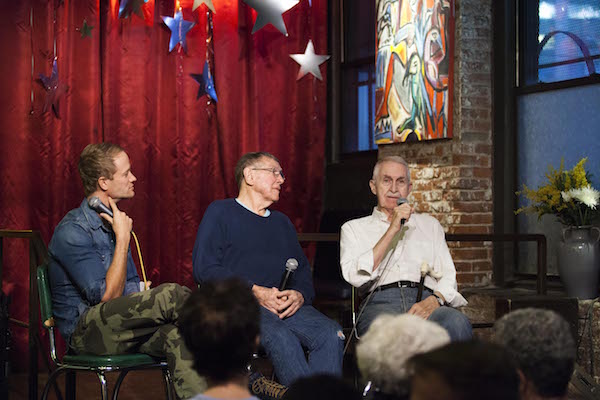
Of course, there were things that were life experiences common in age milestones. The younger just beginning his life career. The middle-aged in a major life transition changing careers. The eldest dealing with retirement and maintaining his health in elder years. Yet all three characterized some of their most meaningful milestones and experiences in life in relationship to other gay men. First loves, first guy they messed around with, serious life long relationships, communal connections to gay men that supported them in their most vulnerable moments, etc. Listening to each of them talk and reflect on life, I saw myself in each. The struggle to find love, the struggle to come to terms with being homosexual in a heterosexual world, the search for more accepting spaces, or at the very least…spaces that were populated by other homosexuals. There was a common narrative of struggling with religion too, though each came to very different conclusions about their personal beliefs, they all rejected main stream religion in some fashion.
There was a mixture of pain and celebration in all their experiences. Which I feel is a wholistic and true view of homosexuality. We experience isolation from others like ourselves, discrimination, and living in a normative world that generally doesn’t provide for our needs as gay men. Yet the joys of having sex with men, that first time we discovered how pleasurable and good it felt. Experiencing that encounter with homophobia that’s traumatic. Overcoming the isolation and finding that first boyfriend, then the pain of losing him and thinking it’ll be impossible to find another (if you live in an environment where that’s hard). Experiencing the euphoria of your first gay bar, that first moment you decompressed and got to explore what it’s like to be homosexual amongst other homosexuals. Even into one’s elder years, there is still a need to find a “senior’s gay and lesbian Lunch” group…there’s such a deep value in having that in your life. No matter what point your at.
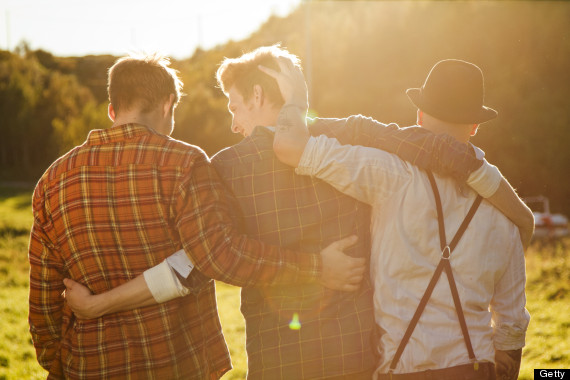
There is a deep connection and almost euphoria for me connecting common threads in gay men. Not only because it serves my desire and need to feel connected to other gay men, but because I think most gay men I’ve met struggle to find that connection. A good many don’t even realize how important it is, and how curative it is to problems we face. In fact my current graduate research that got accepted to a national professional LGBT counseling conference is all about the necessity of gay spaces in treating mental illnesses in gay men.
One may think that a gay male’s ultimate need is to assimilate into the larger society in a way that he is the same as his heterosexual counter parts. There was a time in my life that I use to think that way. Equality in such simplistic terms that it completely dismisses the nuances of deeper and more complex inequities. We’re all human just treat us all the same right? Under that same logic we should just expect someone who’s paralyzed from the waist down to make it through society without any special accommodations or considerations. Like being without a wheel chair and special assistance to travel, or without handicap parking spaces closer to the entrance of stores…if we’re all the same and should be treated equally without regard for what makes us different…it doesn’t address unique needs of populations that are marginal and different to the dominant population. Gay men may be reaching greater levels of equality in heteronormative society with job opportunities, legal rights (ie marriage), and general acceptance (not to dismiss hate crimes, homophobic discrimination and violence, and so on still do happen though). But we still face the challenge of lacking quality ways to connect with each other. Or is grindr and the ever-shrinking quantity of gay bars (some frankly are dominated by straight people who do not honor the purpose of the space) enough to be “quality” connections? No, we need to start thinking about how we will both preserve gay spaces and create new and better ones.
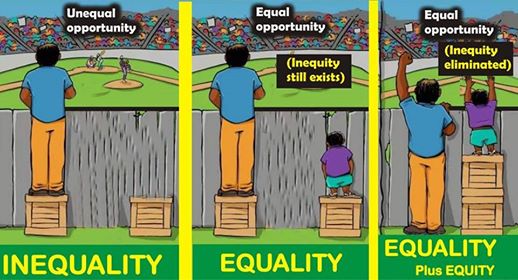
No matter your age, there are common threads of life experiences, desires, emotions, challenges that create a narrative all gay men share. With variations, ofcourse. But I think we have the potential to be the cure for our own problems. So much of gay men’s resiliency factors (the ability to with stand and heal from our traumas) is not only asking heterosexuals to be nice to us. Its also having a connection to each other. I would actually call it spiritual in many ways. I’m not the most spiritual person like I use to be back when I was in seminary and getting a Religious Studies BA…But if I do still think there is something spiritual in my life anymore. It’s the connection I share in a sense of fraternal brotherhood with other gay men I connect deeply with. Some of it is sexual. After all facing and celebrating our sexuality is a huge part of being fulfilled as homosexuals. Some of it is just the power of sharing a fraternal bond to someone united in the same narrative. Understanding that thing you both went through, without having to explain it, without having to defend it. Having a space where you don’t have to fight simply to establish your existence. Having a space where you can explore and/or celebrate parts of who you are no where else.
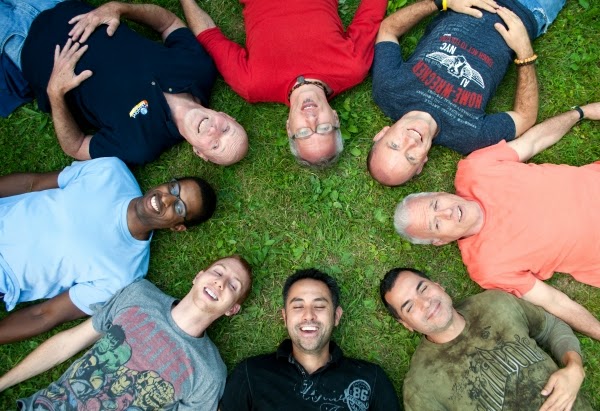
One of the gay men I interviewed disclosed he had a history of alcohol abuse, he’s not the first I’ve met to have this problem. In fact, a study has shown that 20-25% of gay and lesbian persons are heavy drinkers compared to 3-10% of heterosexual persons who are heavy drinkers (as cited in Weber, 2008)[i]. Why? Well there are many explanations Weber (2008) also cites more research that gay men who tend to have higher rates of internalized homophobia tend to have higher rates of substance abuse[ii]. Many of my previous blogs have emphasized how important addressing internalized homophobia is. It’s the biggest thing that stands in the way of making our communal experiences valuable and positive. It’s the also paradoxically one of many reasons having a community is valuable and positive. Weber (2008) also cites that gay male single gendered therapy groups were found more effective in treating mental illnesses in gay men then were more general mixed groups[iii]. Why? Because we need connections to each other specifically as gay men to address our internalized homophobia. Which, research has shown, impacts so many aspects of our mental health and general wellbeing (Davidson et al., 2017[iv], Lingiardi et al., 2012[v], Okutan et al., 2017[vi], Li et al., 2015[vii]).

As I am interning in a substance abuse program. The need for unique spaces for LGBTQ clients is apparent. While in a bigger city it would be fairly easy to make a group uniquely for each letter of the LGBTQ+ alphabet. It’s not necessarily practical in a smaller town without the population and resources to support it. But me advocating for the need for unique spaces has at least lead to administrative bodies acknowledging the unique needs of each. It has created the understanding needed to create separate therapy groups that aren’t relying on a heteronormative gender binary. As the center I work at, as an inpatient facility, has men and women strictly separated (to a point they aren’t even allowed to sit at the same table in hallways). Obviously if you’re not straight, that makes no sense. If you’re transitioning, its awkward and uncomfortable. While it may not be nearly as immersive or deep as having a different group for each letter. It does mean that gay men won’t have to go through the awkward experience of talking about how their substance issues are deeply tied to their first gay bar experience in a room full of heterosexual men that can’t relate and may even be homophobic. It benefits the other groups as well who may feel isolated in the groups dominated by those relying on gender segregated hetero-gender-normative experiences. Ideally I would want each group to have their own letter, because the experience for each would go that much deeper. But I’ll have to wait till I can go to a bigger city with a larger LGBTQ+ population to put that work into practice. And like I say, it’s hard to face internalized homophobia if you’re not around other people of the same sexual orientation to bring it up to face. And facing internalized homophobia can often be an essential part of treating homosexuals with different forms of mental illness and addiction. I know for me personally, I had MANY lesbian, transgender, and straight friends for years…while they were supportive and positive influences on my life, I was still always feeling uncomfortable with gay men. It wasn’t until I encountered a focused and immersive gay male space, that I ever addressed my own internalized homophobia and all the other issues in my life connected to it.
Obviously, with substance use being one of the many problems, gay men need more then just bars alone to create spaces that can produce these curative effects. But bars are among many places that can create a curative sense of community to address our isolation and internalize homophobia (for those of us not struggling with substance use). But we’ll never grow beyond bars alone if we don’t start investing communal value in gay spaces for gay men. We limit our own potential to grow, become more accessible, effective, and supportive of a community. When we do not value creating, growing, and preserving our own sub-cultural and unique space.
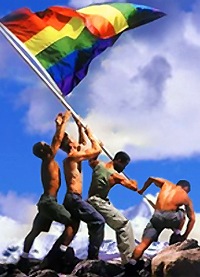
It’s become more and more my life work to seek out these communal spaces of gay men and advocate for their unique and vital importance. Not only because I am a gay man my self and have experienced first hand how powerfully spaces like that have healed, empowered, and uplifted me to levels I could never achieve in other environments. But also because I am deeply moved when I’ve seen time, and time, and time again how it impacts other homobrothers’ lives who finally hit that moment when they discover that connection and never even realized how deeply they needed it.
My project exploring the narratives of gay men at different developmental stages of life only affirmed for me how important this passion is. How deeply it can impact people. We share narratives that connect us in ways not found in other contexts and environments. I am always diving deeper into how this experience can grow, and become more accessible and common. I truly believe there is a unique spirit amongst gay men that simply cannot be found else where, and it’s that spiritual connection that can address something we’re all isolated from experiencing yet need so much.
Creating, preserving, and growing this experience for gay men, is no different to creating specialized services for people with disabilities, for women, for the elderly, for people who are transgender, and so on. There is no way expecting assimilation from wide and diverse populations will make the world a better place. Acknowledging, honoring, and holding spaces for our differences though, can go a LONG way to making the world better. Many times I’ve encounter women’s only groups, programs, and so on. I’ve felt that as an ally to women, I must honor their need to have that space to themselves to heal, be empowered, and celebrate their sisterhood. No different to the fact I understand how important it is for Hindus and Muslims and Buddhists to have their own communities dedicated to their practice. Erasing the uniqueness of human differences leads to a cultural trauma and starvation for fraternal connection in the human condition. If we really care about all of our needs, we need to honor how unique they are and accommodate our needs to find our own tribes.
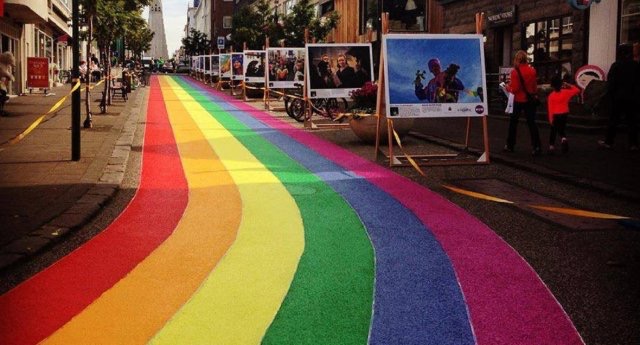
So in my exploration of painting a tapestry of research, narratives, and community experience of what it is to be gay men and have a community of other gay men. I come back to the my project, it’s a common theme no matter where you’re at in life, to need that gay connection somehow. Perhaps there will always be those who see no purpose in it, or do not place value on creating it. It is not my place to tell them what they do or do not need. Yet I see often in these gay men an isolation from other gay people “I don’t identify with the gay community…I don’t like the gay community…I am just like straight people except I like guys, I’m not like most gay people…” I use to say all of that too, until I encountered my first truly immersive and sacred space with other gay men and became aware of how conditioned I was to subconsciously hate homosexuality and myself as a homosexual. That feeling isolated me from a sense of brotherhood I could have had…if only I had valued the common narrative of male homosexuality and sought out a space dedicated to it. After seeing so many stories of gay men that have been touching and felt the deep connection we all share. I don’t care how far we progress through the generations to become accepted in heteronormative society. We’ll always need immersive and empowering gay spaces. I hope we’ll value and protect them enough that we not only preserve it as a tradition, but can expand it. Which is preferable to losing them with the progression of our cultural development in society. Imagine the potential of a group of gay men having a space all to themselves to discover a sense of pride in their common narratives, to derive a sense of spiritual and/or humanistic meaning in their unique connections, to support and empower each other in their marginal and unique experiences. That’s the space I thrive in. That’s the space that could (and has in the rare moments its made) change the lives of many gay men both in past and future generations.
[i] Weber, G. G. (2008). Using the to numb the pain: Substance use and abuse among lesbian, gay, and bisexual individuals. Journal of mental health counseling, 30(1), 31-48.
[ii] Weber, G. G. (2008). Using the to numb the pain: Substance use and abuse among lesbian, gay, and bisexual individuals. Journal of mental health counseling, 30(1), 31-48.
[iii] Weber, G. G. (2008). Using the to numb the pain: Substance use and abuse among lesbian, gay, and bisexual individuals. Journal of mental health counseling, 30(1), 31-48.
[iv] Davidson, K., McLaren, S., Jenkins, M., Corboy, D., Gibbs, P. M., & Molloy, M. (2017). Internalized Homonegativity, Sense of Belonging, and Depressive Symptoms Among Australian Gay Men. Journal Of Homosexuality, 64(4), 450-465.
[v] Lingiardi, V., Baiocco, R., & Nardelli, N. (2012). Measure of Internalized Sexual Stigma for Lesbians and Gay Men: A New Scale. Journal Of Homosexuality, 59(8), 1191-1210. doi:10.1080/00918369.2012.712850
[vi] Okutan, N., Sunal, A. B., & Ugurlu, N. S. (2017). Comparing heterosexuals’ and gay men/lesbians’ responses to relationship problems and the effects of internalized homophobia on gay men/lesbians’ responses to relationship problems in Turkey. Journal Of Homosexuality, 64(2), 218-238. doi:10.1080/00918369.2016.1174028
[vii] Li, M. J., Hubach, R. D., & Dodge, B. (2015). Social milieu and mediators of loneliness among gay and bisexual men in rural Indiana. Journal Of Gay & Lesbian Mental Health, 19(4), 331-346. doi:10.1080/19359705.2015.1033798
Nicely written, and well thought out.
LikeLike